“Whispering Companions: Exploring the World of Serene Small Dog Breeds”
** Introduction **
Are you looking for a pet that fits perfectly into your peaceful lifestyle? Quiet small breed dogs may be the ideal companions you are looking for. These pint-sized pups offer all the love and companionship of larger breeds, but with a calm and cool demeanor that is suitable for a variety of living situations.

Table of Contents
Imagine coming home to a furry friend who greets you with gentle affection instead of loud barking. Quiet small dog breeds are known for their calm temperaments, making them excellent choices for apartment dwellers, families with small children, or anyone looking for a laid-back canine companion.
In this blog post, we will dive into the delightful world of quiet small dog breeds, exploring their unique characteristics and the benefits they bring to the lives of their owners. From their manageable size to their low-key personalities, these dogs have a lot to offer.

Whether you’re a first-time dog owner or a pet enthusiast, understanding the appeal of quiet small dog breeds can help you make an informed decision when choosing your next furry family member. Let’s embark on this journey together and learn why these whispering companions could be ideal for your home.
** Characteristics of Quiet Small Dog Breeds ;
Quiet small dog breeds have a specific set of characteristics that set them apart from their larger, more spirited counterparts. One of his distinguishing characteristics is his calm and collected demeanor. Unlike some breeds that can be rambunctious or overly energetic, quiet small dog breeds tend to be more laid-back and less vocal, making them ideal for living in close quarters like apartments or condos.
Another notable feature is their manageable size. These dogs are generally compact and portable, making them easy to handle and transport. Their small stature also means they require less space and exercise than larger breeds, making them suitable for owners with busy lifestyles.
In addition to their calm temperament and small size, many of these breeds are known for their affectionate and loyal personalities. They form strong bonds with their owners and thrive on companionship and attention. Despite their small stature, they often have big hearts and are eager to please.
Overall, the unique characteristics of quiet small dog breeds make them wonderful companions for individuals and families who are looking for a peaceful and loving pet that will integrate seamlessly into their daily lives. If you value peace and companionship, consider welcoming one of these delightful dogs into your home.
** Benefits of Quiet Small Dog Breeds ;

Quiet small dog breeds offer many unique benefits that make them popular choices for pet owners looking for a calm and manageable companion. An important advantage is their suitability for apartment living. Their quiet nature means they are less likely to disturb neighbors with excessive barking or noise, making them ideal for shared spaces.
Another benefit is their lower exercise requirements than larger breeds. While all dogs need regular activity, calm small dog breeds typically have low energy levels and may be satisfied with short walks and indoor play sessions, making them easier to adjust to a busy schedule. .
Their compact size is also a notable advantage. Small dogs are easy to transport, whether it’s for trips to the vet or family vacations. They also take up less space in the home, making them a practical choice for small living environments.
Additionally, calm small dog breeds often excel as lap dogs, providing warmth and companionship during quiet moments. Their affectionate and gentle nature makes them wonderful companions for individuals and families.
In short, the unique benefits of quiet small dog breeds make them an attractive choice for those seeking a peaceful and harmonious relationship with their canine companion.
** Top 15 Quiet Small Dog Breeds ;
Definitely! Here is a list of 15 unique and cool small dog breeds that prove to be excellent companions:
1. Cavalier King Charles Spaniel :
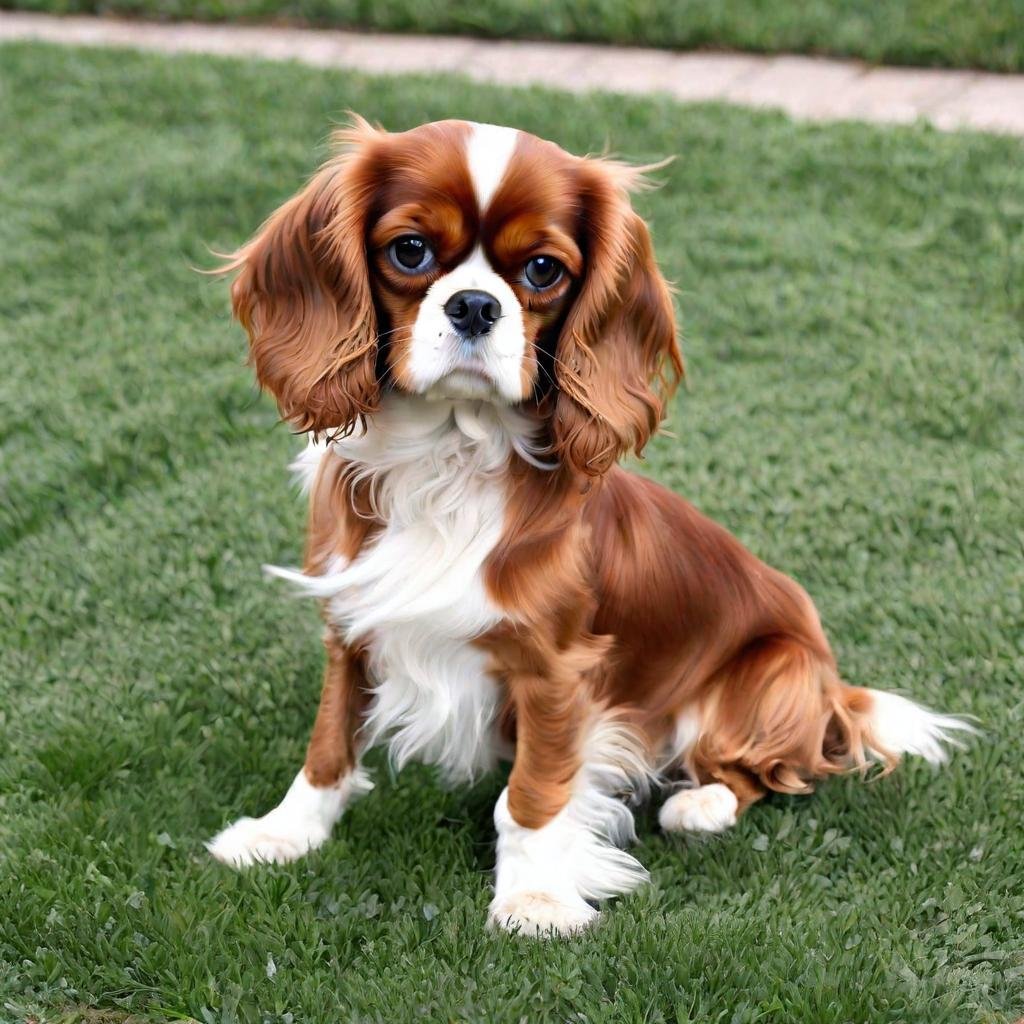
The Cavalier King Charles Spaniel is a sweet-natured small breed known for its affectionate personality. They thrive on companionship and are gentle with children and other pets. With their silky coats and expressive eyes, Cavaliers make wonderful indoor companions and are adaptable to a variety of living environments.
2. Shih Tzu :

The Shih Tzu is a small, friendly dog breed known for its calm and loving nature. They have a luxurious coat that requires regular grooming. Shih Tzus are great companions, suitable for apartment living due to their gentle behavior and minimal exercise requirements.
3. French Bulldog :
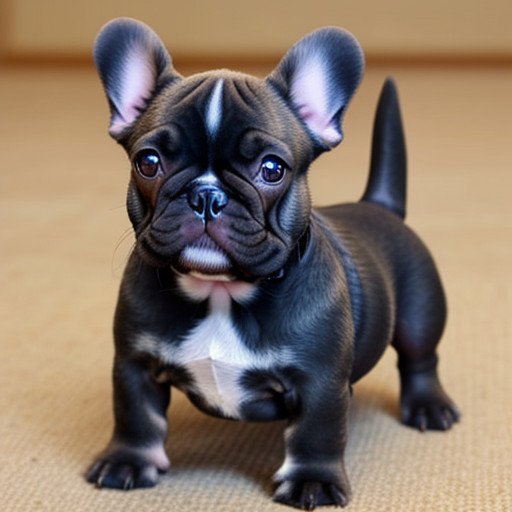
The French Bulldog is a compact and affectionate breed with a calm temperament. They have a distinctive bat-like appearance with a short coat that is easy to maintain. French Bulldogs make excellent indoor companions, who enjoy relaxing and cuddling with their owners. They are loyal, adaptable, and suitable for a variety of lifestyles.
4. Bichon Frise :
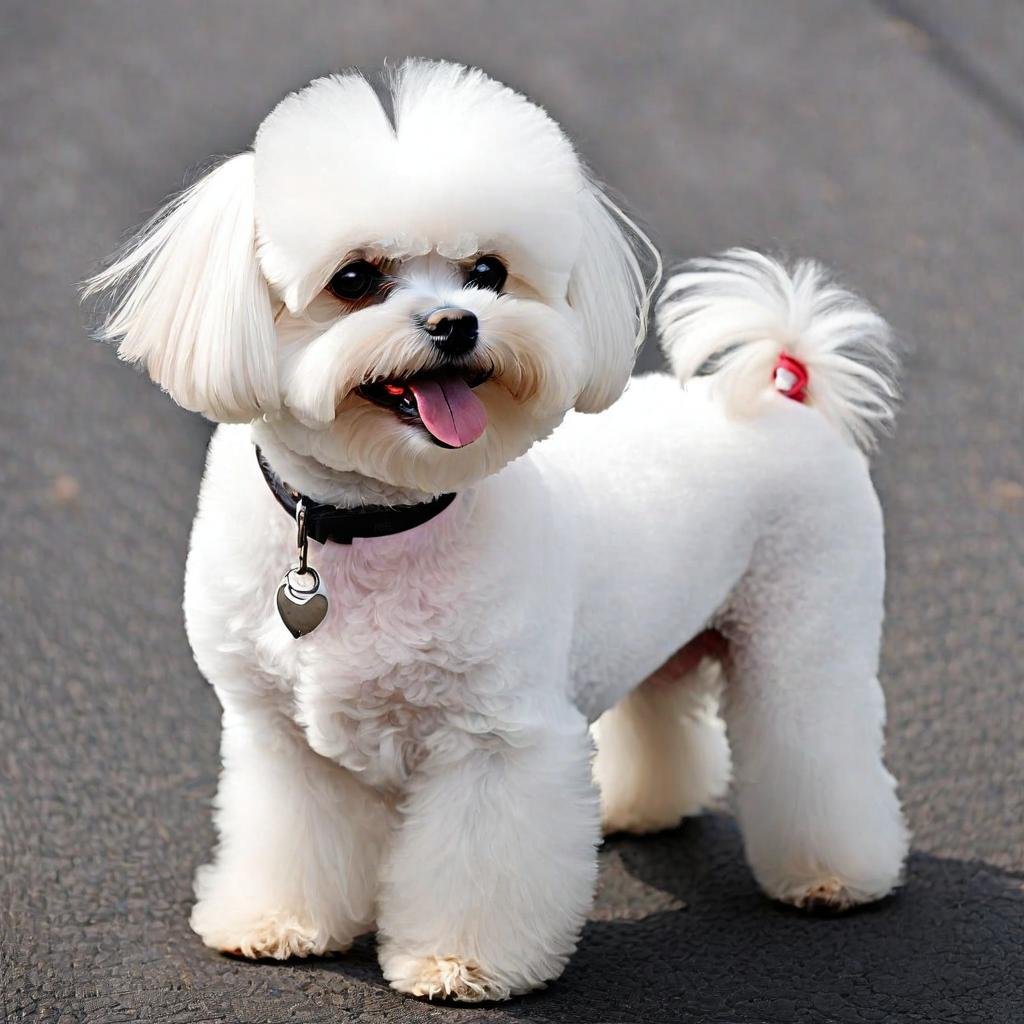
The Bichon Frise is a cheerful and playful small breed known for its curly, hypoallergenic coat. They are friendly, affectionate and enjoy being the center of attention. Bichons make great family pets and get along well with children and other animals. Their coat requires regular grooming to keep it looking its best.
5 . Basenji :
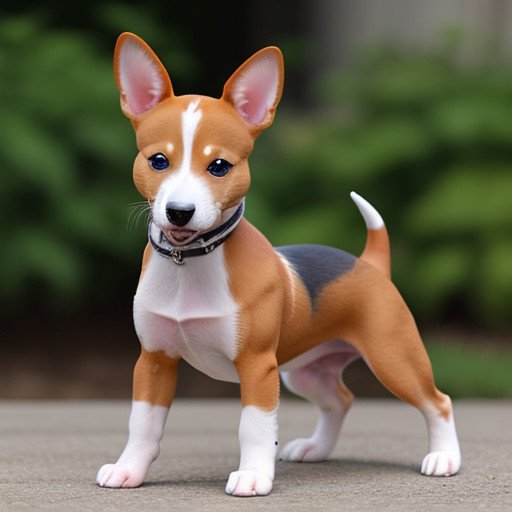
The Basenji is a unique small breed known for its calm nature and distinctive yodel-like sound rather than barking. They are independent but affectionate dogs, with their short coat requiring minimal care. Basenjis are curious, intelligent and can make excellent companions for experienced dog owners who appreciate their quirky personalities.
6. Japanese Chin :
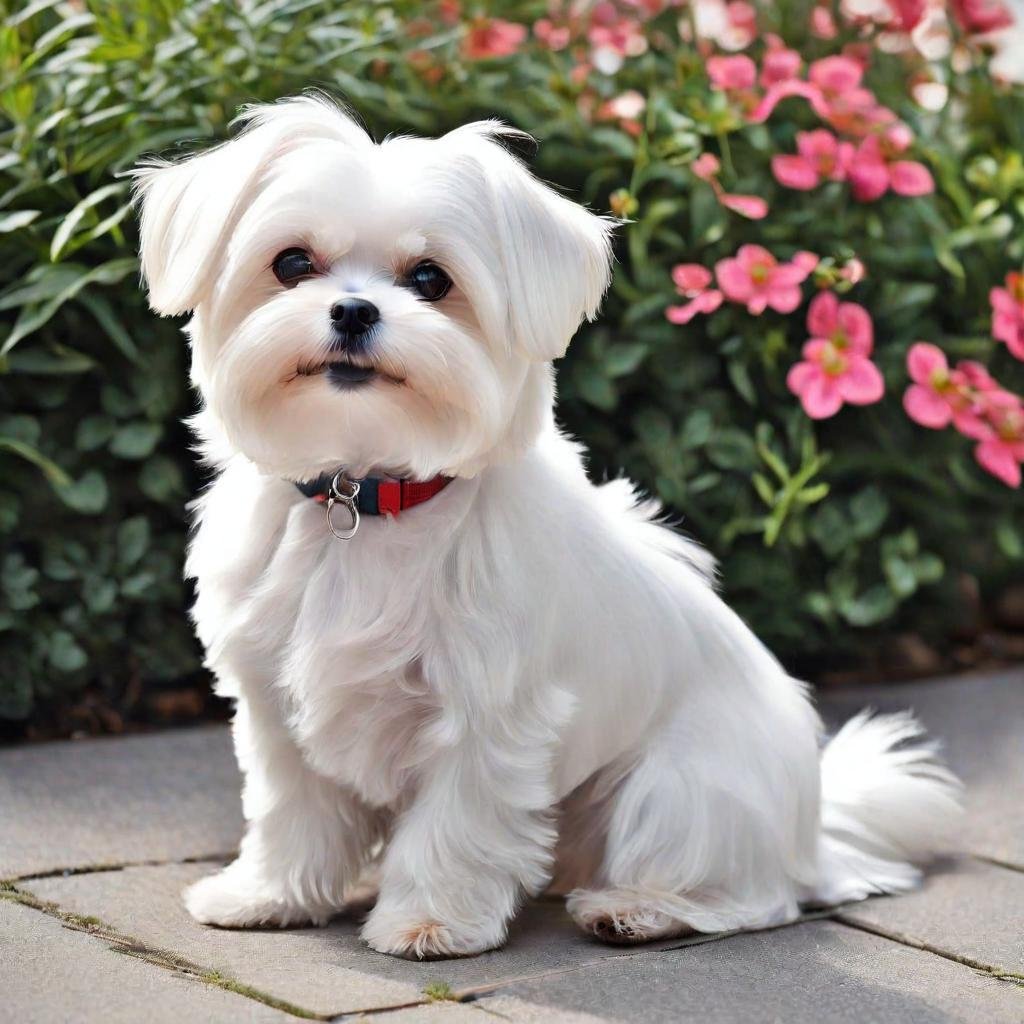
The Japanese Chin is a beautiful and affectionate small breed with a silky coat and expressive eyes. They are gentle, calm and thrive on companionship. Japanese Chins are suitable for living indoors and enjoy sitting in laps or on furniture. They make loving and devoted companions for families and individuals alike.
7. Coton de Tulear :
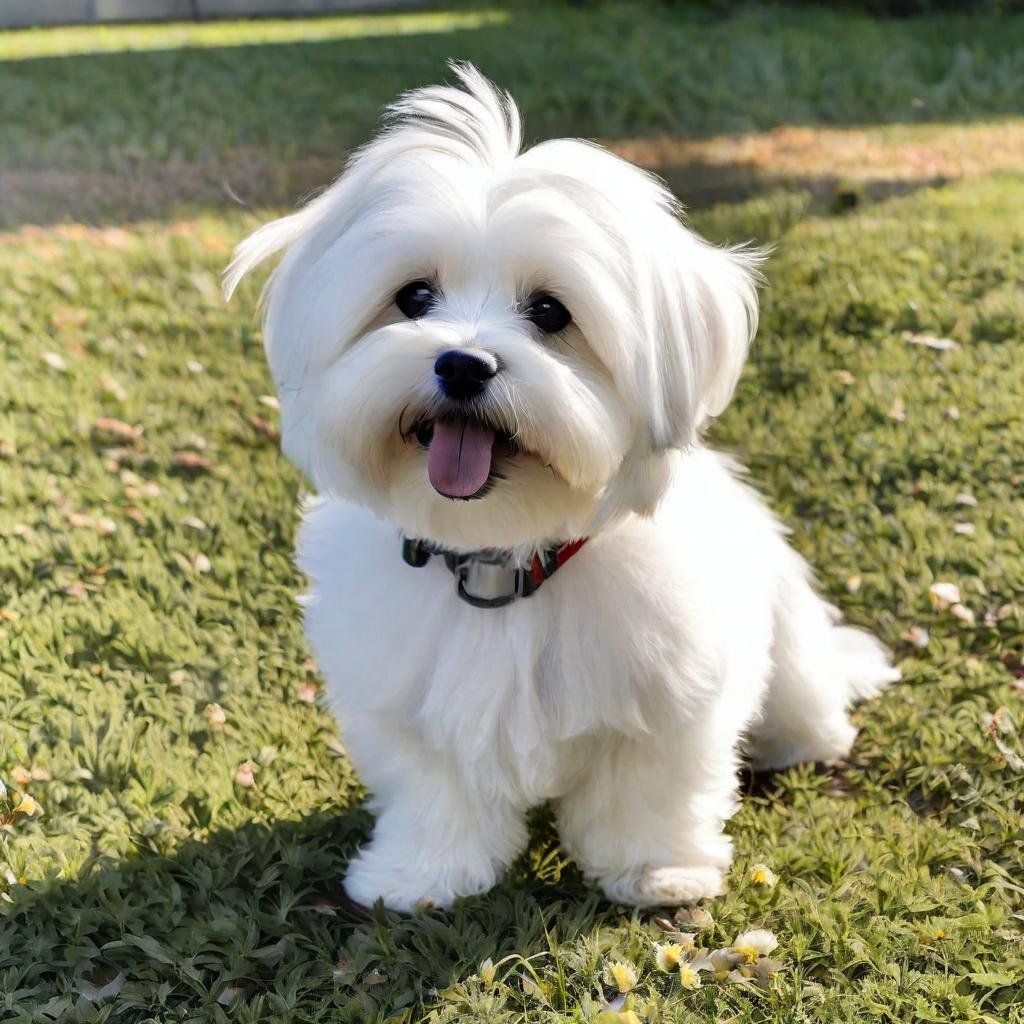
The Coton de Tulear is a fluffy and friendly small breed with cotton-like wool. They are friendly, affectionate and love to be among people. Cotons are adaptable and well-behaved, making them great companions for families and single people. They enjoy sports but are also content to relax indoors.
8. Havanese :

The Havanese is a charming small breed known for its cheerful personality and silky, wavy coat. They are friendly, intelligent and enjoy being part of a family. Havanese dogs adapt to a variety of living situations and get along well with children and other pets. They make delightful companions for people of all ages.
9. Italian Greyhound :

The Italian Greyhound is a slim and graceful small breed with a short, smooth coat. They are sensitive, affectionate, and bond closely with their owners. Italian Greyhounds are gentle and calm indoors but can be fast and agile outside. They thrive on love and attention and become devoted companions to people who appreciate their beauty.
10. Maltese :

The Maltese is a small and beautiful breed with a long, silky white coat. They are affectionate, lively and love to be pampered. Maltese dogs are gentle and adaptable, making them ideal companions for indoor living. They love attention and are great with families, but they do need regular grooming to keep their coat looking beautiful.
11. Papillon :
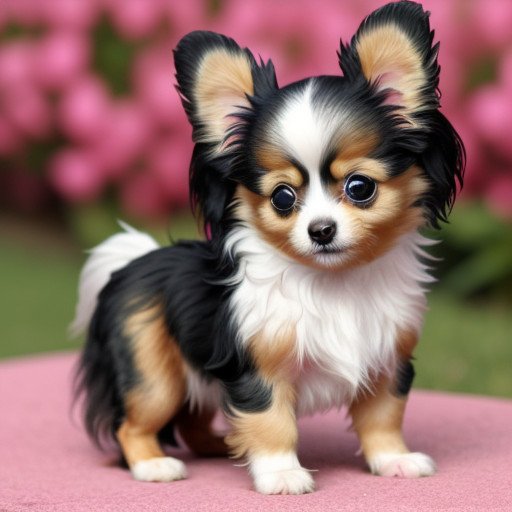
The Papillon is a small and lively breed known for its butterfly-like ears (papillon means “butterfly” in French). They are intelligent, friendly and easy to train. Papillons enjoy being active but also love to cuddle with their owners. With their charming appearance and delightful personalities, they make wonderful companions for active families.
12. Boston Terrier :

The Boston Terrier is a small, sturdy breed with a tuxedo-like coat pattern. They are friendly, intelligent and playful but gentle. Boston Terriers are easy to train and get along well with children and other pets. They make loyal companions and thrive in a variety of living environments
13. Shetland Sheepdog :

The Shetland Sheepdog, or Sheltie, is a small herding breed known for its intelligence and loyalty. They have a beautiful double coat that requires regular grooming. Shelties are gentle, energetic, and excellent at obedience training. They are affectionate towards their families and make excellent watchdogs. Shelties thrive in active homes with plenty of mental stimulation.
14. Pekingese :

The Pekingese is a small breed with a distinctive lion-like appearance and a flowing coat. They are dignified, loyal and affectionate companions. Pekingese dogs are independent yet devoted to their owners. Despite their regal demeanor, they love to cuddle and relax indoors. Regular grooming is required to maintain their luxurious coat and unique appearance
15. Chinese Crested :

The Chinese Crested is a small breed known for its unique appearance, its body is hairless and has tufts of hair on the head, legs and tail (known as the “powder puff” variety). They are affectionate, lively and love to be with their families. Chinese Crested shed less and are suitable for allergy sufferers.
Each of these breeds offers unique qualities that contribute to their reputation as calm and well-behaved companions. Whether you’re looking for a lap dog or a playful friend, one of these calm small breeds could be the perfect addition to your family.
** Factors to Consider Before Choosing a Quiet Small Dog Breeds ;
Before choosing a quiet small dog breed, consider several important factors to ensure a favorable match for your lifestyle:
1. Living Space:
Evaluate your living situation. While calm small dog breeds are generally suitable for apartments or homes with limited space, make sure you can provide a safe and comfortable environment.
2. Exercise Needs:
Regardless of their size, all dogs need exercise. Research the specific exercise needs of the calm small dog breed you are considering to ensure you can meet their needs.
3. Care Requirements:
Some cool small breeds have high grooming requirements due to their coat. Consider whether you are willing to commit to regular grooming sessions to keep your dog looking and feeling his best.
4. Temperament and Compatibility:
Understand the breed’s specific temperament and make sure it suits your preferences and lifestyle. Consider factors such as energy level, sociability, and compatibility with children or other pets.
5. Allergies:
If allergies are a concern, research hypoallergenic breeds in the quiet small dog category that may be better suited for allergy sufferers.
6. Training and Socialization:
Determine your commitment to training and socializing your dog. Some breeds may require more effort in these areas to thrive in different conditions.

7. Health Considerations:
Research common health issues associated with the breed and make sure you are prepared for potential veterinary care and health maintenance.
8. Longevity:
Consider the lifespan of the breed and be prepared for a long-term commitment to your dog’s care and well-being.
By considering these factors, you can make an informed decision and select a quiet small dog breed that will harmoniously integrate into your dog. May life bring you happiness for years to come.
** Training and Socialization ;
Training and socialization are important to the well-being of quiet small dog breeds. Here are the unique aspects to consider:
1. Gentle approach:
Use positive reinforcement methods like treats and praise. Calm small breeds respond well to gentle training techniques that build trust and confidence.
2. Consistent routine:
Establish a consistent training schedule to reinforce desired behaviors. Calm little dogs thrive on routine and clear expectations.
3. Socialization Opportunities:
Expose your dog to different environments, people, and other animals from an early age. This helps prevent shyness or fear.

4. Patience and persistence:
Calmer small breeds may take longer to master commands. Be patient and consistent in your training efforts.
5. Leash Training:
Pay attention to leash manners due to their small size. Teach to walk on a loose leash and remember commands to ensure safety during walks.
6. Handling and grooming:
Start grooming and handling exercises early to get your dog accustomed to regular handling. This reduces anxiety during beauty sessions.
7. Exercise Balance:
Balance physical and mental exercise to keep your dog stimulated. Engage in interactive games and training sessions to avoid boredom.
8. Training for calm behavior:
Teach calm commands to control barking. Reward calm behavior to reinforce calmness.
Remember, every dog is unique, so tailor training and socialization to your dog’s personality and needs. Consistent training and positive experiences will help your calm small breed grow into a well-behaved and confident companion.
** Caring for Quiet Small Dog Breeds ;
Caring for quiet small dog breeds includes specific considerations to keep them healthy and happy:
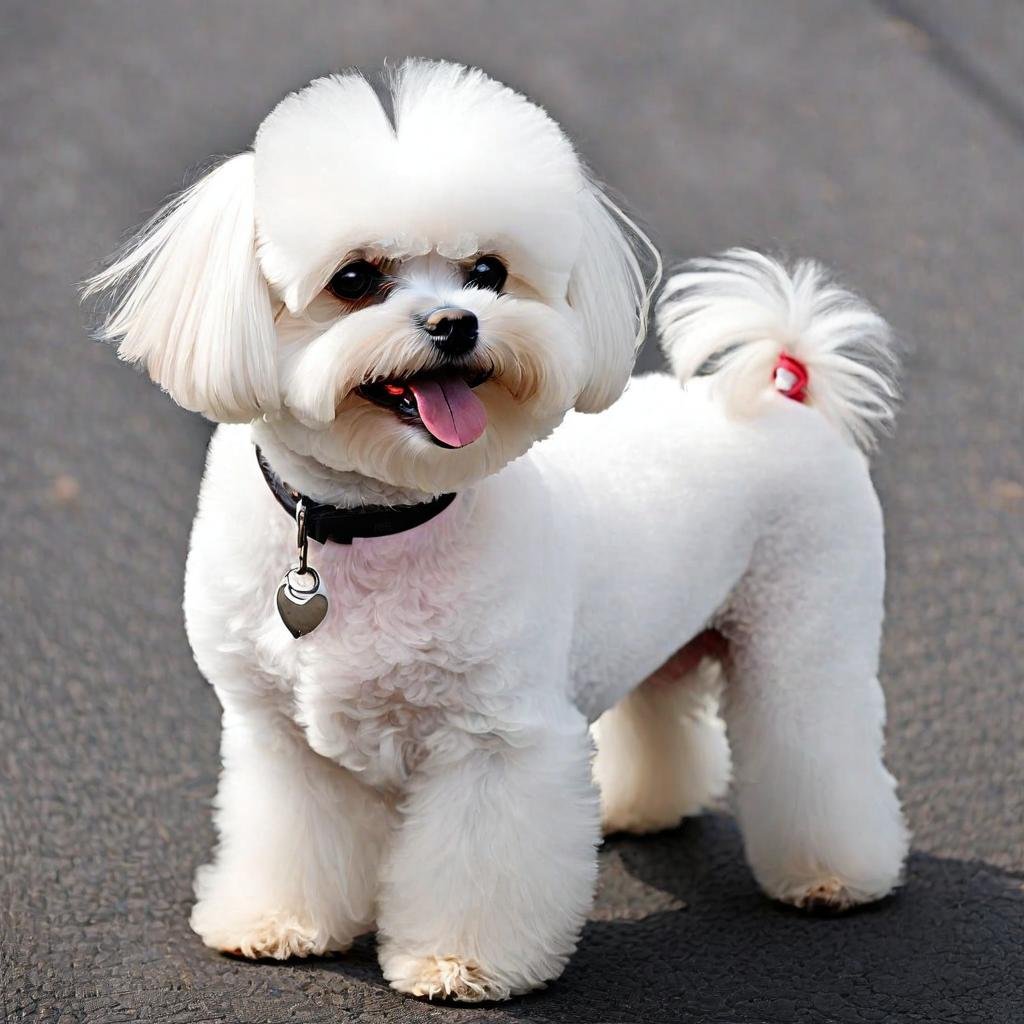
1. Regular exercise:
Even though they are small, these dogs still need daily exercise. Involve them in short walks, sports sessions or indoor activities to keep them active and prevent obesity.
2. Balanced diet:
Feed a high-quality diet appropriate for their size and activity level. Avoid overeating to maintain a healthy weight.
3. Grooming Routine:
Follow a regular grooming schedule to keep their coat clean and tangle free. Brush their coat several times a week and trim their nails as needed.
4. Dental Care:
Small breeds are prone to dental problems. Brush their teeth regularly and provide dental treats or toys to promote oral health.
5. Regular Vet Visits:
Schedule regular vet checkups to monitor their health and vaccinations. Discuss preventive care measures with your veterinarian.
6. Temperature Control:
Protect them from extreme temperatures due to their small size. Provide a comfortable indoor environment and use dog clothing in cold weather.
7. Social Interaction:
Despite being calm, these dogs need social interaction. Spend quality time with them, and provide mental stimulation through toys and games.
8. Safety Precautions:
Keep them safe from dangers such as poisonous plants, small objects, and large animals due to their size.

By providing careful care tailored to their needs, quiet small dog breeds can thrive and become beloved companions in your home.
** Real Stories and Testimonials ;
Real stories and testimonials from owners of quiet small dog breeds can provide valuable insight into the joys and challenges of owning these delightful companions. Here are unique ways to explore these narratives:
1. Personal Experiences:
Share anecdotes of owners’ connection with their cool little dogs, highlighting special moments of companionship and affection.
2. Lifestyle Integration:
Explain how these dogs fit seamlessly into different lifestyles, such as apartment living, working from home, or being part of a family with children.
3. Training Victories:
Highlight success stories of training accomplishments, showing how patience and positive reinforcement techniques have shaped well-behaved and happy dogs.
4. Heartwarming Relationships:
Discuss the unique bond between owners and their cool little dogs, emphasizing the emotional support and comfort these dogs provide.
5. Rescue and Adoption Stories:
Feature stories of cute little rescued dogs finding loving homes, often highlighting the rewards of adopting these neglected breeds.
6. Challenges and Solutions:
Address common challenges faced by owners, such as grooming or separation anxiety, and share practical tips and success stories for overcoming them.

7. Therapy and Assistance Work:
Find stories of calm little dogs who excel in therapy or assistance roles, showing off their empathy and intelligence.
8. Community Engagement:
Highlight how owners connect through social media or local groups to share experiences and celebrate their cool small dog breeds.
Real stories and testimonials add depth and authenticity to your understanding of cool small dog breeds, inspiring and informing potential owners about the joys and responsibilities of welcoming these wonderful companions into their lives.
** Conclusion **
Finally, quiet small dog breeds offer a world of companionship and happiness for those looking for a gentle and manageable pet. Characterized by their calm demeanor and compact size, these breeds bring unique qualities to any home.
Choosing a calm small dog breed requires thoughtful consideration of lifestyle, care needs and training commitments. However, the rewards are abundant. From the loving companionship of the Cavalier King Charles Spaniel to the playful antics of the Shih Tzu, each breed offers its own charm and personality.

By providing proper care, regular exercise and social interaction, quiet small dog breeds can thrive in a variety of living environments, including apartments and family homes. Their adaptability and affectionate nature make them wonderful additions to homes of all sizes.
Remember, owning a dog is a long-term commitment. Make sure you are prepared to provide these breeds with the care and attention they require. Whether you’re a first-time dog owner or a seasoned dog enthusiast, the bond formed with a cool small dog can be incredibly rewarding and gratifying.
By getting the companionship of a quiet small breed dog, you are opening your heart to a loyal and loving friend who will enrich your life with their presence and affection.
** Additional Resources and Recommendations ;
For more information and resources about calm small dog breeds, consider the following recommendations:
1. Breed-Specific Books:
Explore books dedicated to specific breeds like Cavalier King Charles Spaniels, Shih Tzus, or Bichon Frize. These books provide detailed information about the characteristics, care and training of the breed.
2. Online Communities:
Join online forums or social media groups focused on cool small dog breeds. Connect with experienced owners, share stories and get advice about raising and caring for these breeds.

3. Local Breed Clubs:
Join local breed clubs or organizations dedicated to specific small breeds. Attend events, participate in activities and network with other breed enthusiasts for valuable support and information.
4.Veterinary Guidance:
Consult trusted veterinarians specializing in small breeds. They can provide tailored advice on the health, nutrition and preventative care of your poochy little dog.
5. Breed-Specific Websites:
Visit reputable websites dedicated to individual breeds. These sites often provide comprehensive breed profiles, training tips, and health information.
6. Rescue Organizations:
Consider adopting through breed-specific rescue organizations. These groups rescue and re-home quiet small dogs in need of loving homes.
7. Professional Training Services:
Enroll in training classes or seek guidance from professional dog trainers specializing in small breeds. They can help address specific behavioral challenges and enhance the bond with your dog.
8. Books and Articles on Dog Care:
Explore general resources on dog care, training, and behavior. Several principles apply universally to calm small dog breeds.
By using these additional resources, you can expand your knowledge and provide the best care for your calm small dog breed, ensuring a fulfilling and rewarding companion for years to come
You might be interested in reading this post as well Fluffy Small Dog Breeds
“Whispering Companions: Exploring the World of Serene Small Dog Breeds” ** Introduction ** Are you looking for a pet that fits perfectly into your peaceful lifestyle? Quiet small breed dogs may be the ideal companions you are looking for. These pint-sized pups offer all the love and companionship of larger breeds, but with a calm…
You can read this posthttps://tomeshnews.co.in/short-hair-small-dog-breeds/
Are quiet small dog breeds suitable for families with children?

Many quiet small dog breeds, like Cavalier King Charles Spaniels and Bichon Frises, can be great family pets. However, always supervise interactions and choose breeds known for their gentle and tolerant nature.
Do quiet small dog breeds require a lot of grooming?

Grooming needs vary among breeds. While some, like Shih Tzus and Bichon Frises, require regular grooming to maintain their coats, others, like French Bulldogs, have lower grooming needs.
Are quiet small dog breeds good for apartment living?

Yes, most quiet small dog breeds adapt well to apartment living due to their size and lower exercise requirements. However, ensure they get sufficient mental stimulation and exercise indoors.
Do quiet small dog breeds get along with other pets?

Many quiet small breeds can coexist peacefully with other pets if properly socialized. However, always introduce them gradually and supervise interactions to ensure compatibility.
Are quiet small dog breeds easy to train?

Generally, quiet small dog breeds are intelligent and eager to please, making them trainable. However, consistency and positive reinforcement are key to successful training.
What health issues are common in quiet small dog breeds?

Some common health concerns in quiet small breeds include dental issues, respiratory problems (especially in brachycephalic breeds), and joint issues due to their small size.
